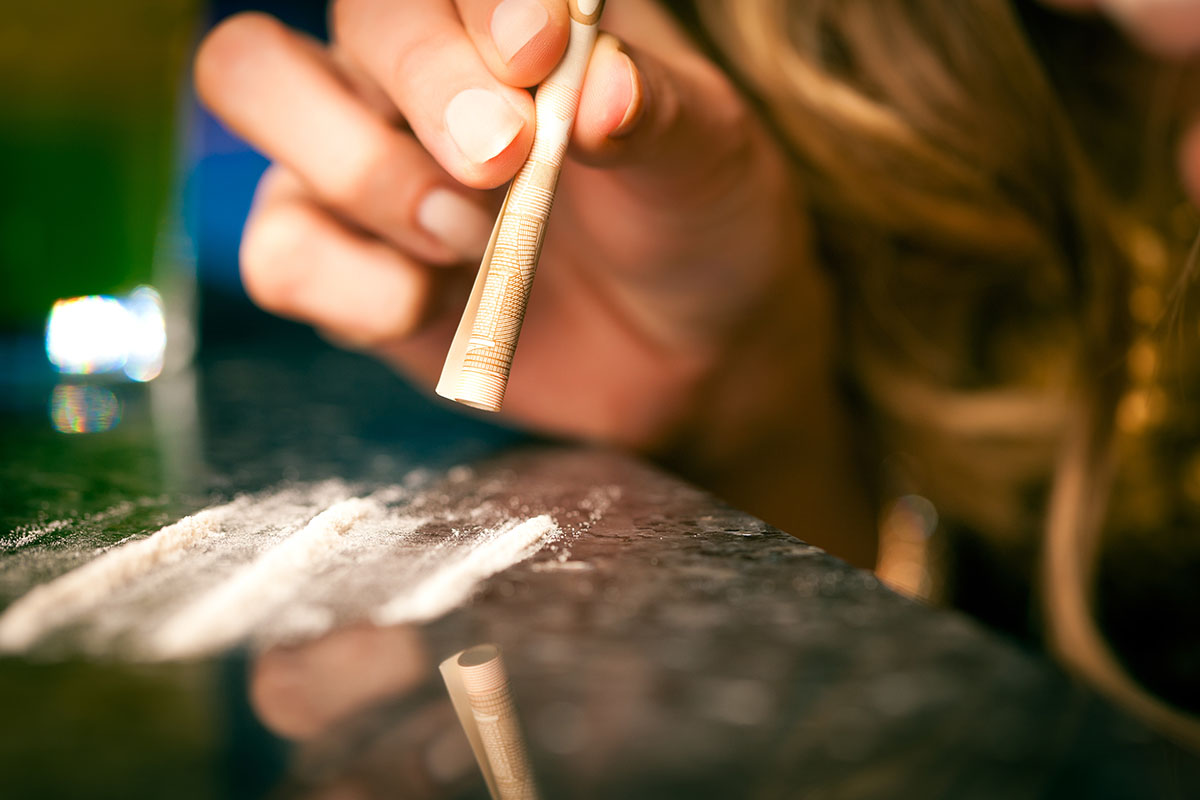Cocaine use puts users at risk for dangerous consequences, and even death. Some people fail to recognize the signs of cocaine addiction, while others continue using in spite of their addiction to cocaine.
The treatment professionals at Oceanfront Recovery have the knowledge to recognize and treat cocaine addiction, and help individuals with a cocaine addiction regain control over their lives.
Learn to recognize the signs of cocaine addiction, whether you are the user, or if you are the loved one of someone with cocaine addiction.
Brief Description of Cocaine and Addiction
Cocaine is a white, powdery substance that is a highly addictive stimulant. Some users snort the fine crystal powder, while other users inject cocaine or smoke it as crack. The National Institutes on Drug Abuse (NIDA) explains that some dealers mix cocaine with talcum powder, cornstarch, or other substances. This process, known as ‘cutting’ the drug, is done for the dealer to increase profits.
Some addicts mix cocaine with heroin or morphine, resulting in a ‘speedball.’ Mixing it with fentanyl is another potentially deadly risk of using cocaine.
Dealers often know the immediate effects of cocaine and the addictive power of cocaine. This is one of many reasons that once a person starts using, the drug is often readily available from the dealer. Once a person starts using cocaine, addiction is a common consequence.
Short-Term Effects of Cocaine
The immediate effects of cocaine are factors that drive a person to continue using it. Some short-term effects of cocaine use include:
- Feeling of euphoria
- Intense feelings of pleasure or ecstasy
- Feelings of increased mental alertness
- Sense of decreased need for sleep or food
- Belief that the user can perform some physical tasks more efficiently
- Hypersensitivity to sight or sound or touch
Some users experience symptoms of anxiety disorders, a condition treated at the Oceanfront Recovery mental health treatment center.
Signs of Cocaine Addiction
Addiction often develops quickly as the person uses cocaine more frequently, and often in larger amounts. The effects of cocaine on the body lead to possible bizarre behavior, aggressiveness, tremors, or paranoia.
Some signs of cocaine addiction include:
- Requiring larger amounts of cocaine to produce the same desired euphoria
- Continuing to use cocaine in spite of negative effects such as delusions or hallucinations
- Exerting considerable time and energy trying to obtain and use cocaine
- Isolation from family and friends because of cocaine use and addiction
- Exhibiting withdrawal symptoms such as sleep disturbances or depression when attempting to stop using cocaine
Cocaine Addiction Treatment at Oceanfront Recovery
The signs of cocaine addiction affect some people differently, although all cocaine use is risky, and potentially results in serious health problems, overdose, and the risk of death.
The Centers for Disease Control and Prevention (CDC) addressed the fact that the number of cocaine-related deaths, along with psychostimulant deaths continues to increase, in spite of efforts to curtail overdoses and deaths. The CDC indicates that the death rate rose among all age groups, races, and ethnic groups, from 2016 to 2017, and across multiple states in the U.S.
Cocaine addiction treatment requires a comprehensive treatment program that addresses the person’s total needs, not just the addiction. Oceanfront Recovery staff recognizes that people with an addiction to cocaine need a variety of treatment modalities to progress through recovery.
Learn to live free of the bonds of cocaine addiction. Contact Oceanfront Recovery at (877) 296-7477 to start your treatment and recovery today







